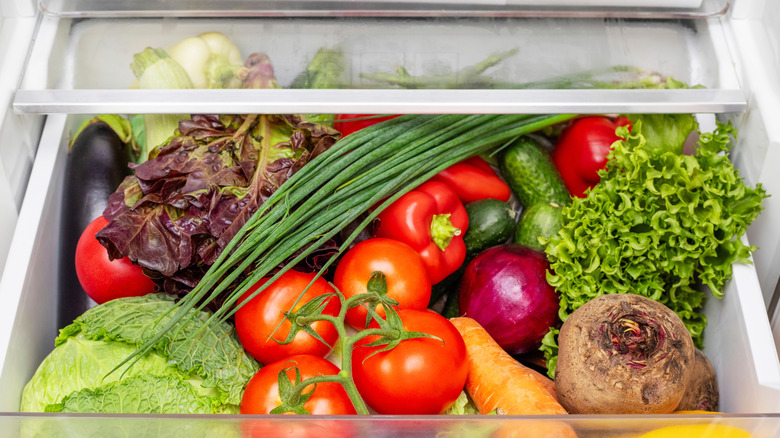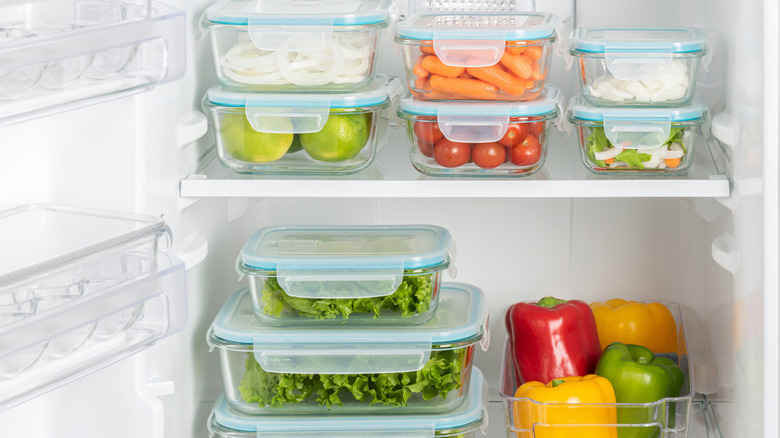The Simple Method That Creates So Much Less Fridge Waste
While a fully-stocked fridge is a sight for sore eyes, it's also a prime accomplice in food waste. People often load their groceries without a well-thought-out system, and this leads to more perishable foods getting lost among those with longer shelf lives. To mitigate this problem, create an "Eat me first!" section, highlighting those items that need attention sooner.
The particulars will differ from one household to the next, but pay attention to expiry dates. It's true, use-by and sell-by dates are fraught with confusion, but for some items, they can mean all the difference. While we might expect dairy products to be the most volatile, it's actually seafood and meat that has the shortest shelf life, even in the refrigerator. These items only last up to five days in the fridge, though cured meats will buy you two to three weeks. Fresh produce also belongs in the "Eat me first!" bin, and a helpful trick is to pre-portion veggies to cook with your meat products, saving you time, effort, and, ultimately, food.
This section in your fridge is also perfect for leftovers, which have a tendency to be placed in Tupperware "for later" and then forgotten about until they are well past their prime. You can even take this one step further with a separate leftovers bin right next to the "Eat me first!" area.
Other tips to avoid fridge food waste
A designated "Eat me first!" bin is an important step in minimizing food waste, but it also has to be front and center. Another common reason for food being forgotten is poor landscaping, so be sure to keep taller items in the back and smaller ones closer to the front. Utilizing the door of the fridge well will also help — keeping dairy products like butter and cheese here will help use them up sooner, especially as many cheeses don't come in resealable packaging, further limiting their usability after opening.
Prevention is often easier than damage control, so be sure to shop with intention. Have a general meal plan for the week, and place each day's relevant groceries in the "Eat me first!" bin to help keep to your schedule. Meal prepping can be overwhelming and mistakes inadvertently lead to food waste, but the main thing to remember is to take it step by step, and don't overload your brain. Remember, it's more efficient to stock your pantry rather than your fridge, and pantry foods are more shelf-stable, so don't let a sparsely stocked fridge make you feel like you're lacking. That said, these tips can help ensure what you do stock doesn't get forgotten.


